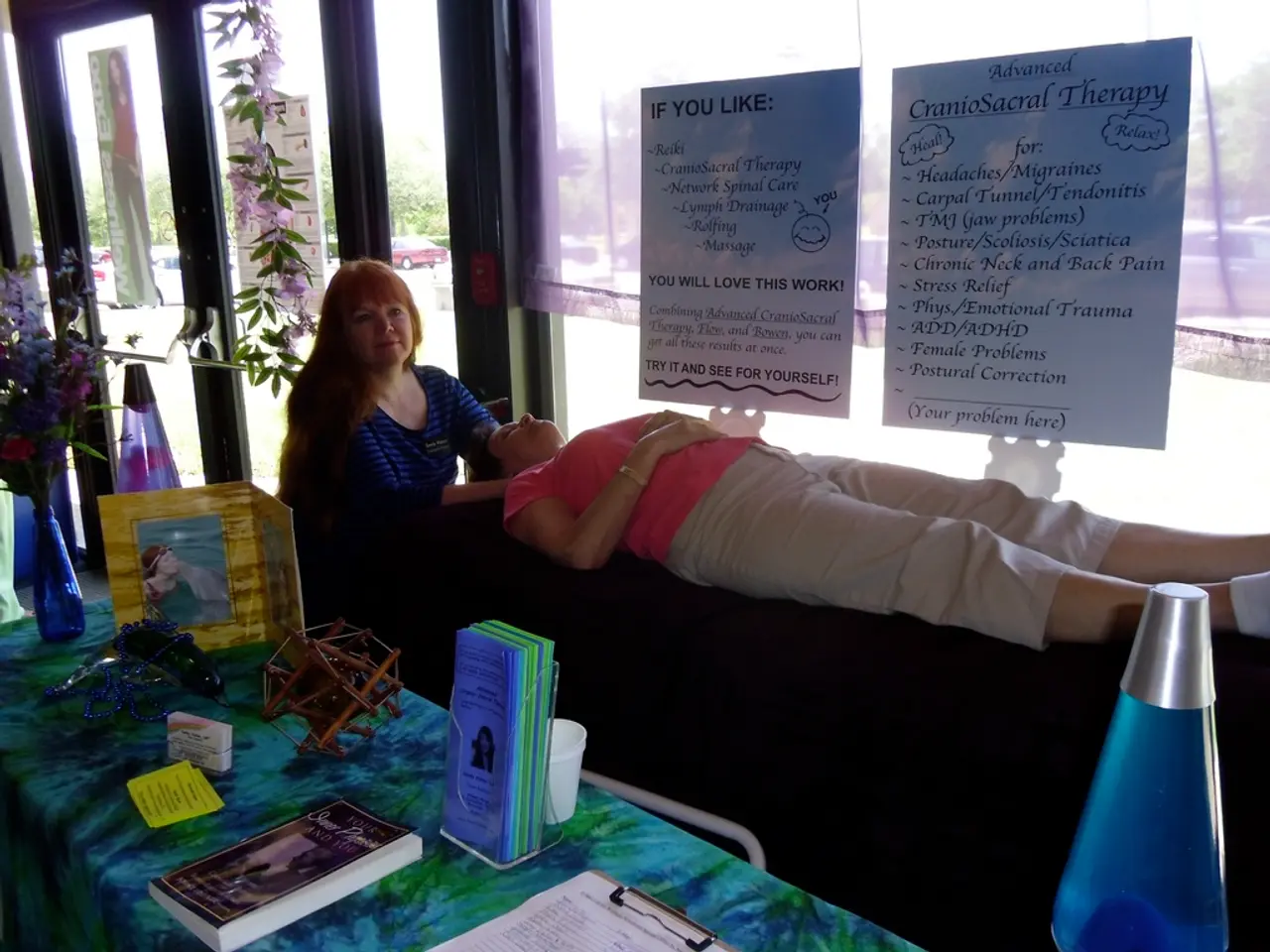"2024 Seminar Focused on Helping Individuals Overcoming Childhood Sexual Abuse"
In a recent workshop hosted by Brighton Therapy Partnership, renowned psychologist, lecturer, and trainer, Christiane Sanderson, delved into the complexities of child sexual abuse, complex trauma, and trauma-informed therapy.
Sanderson's presentation focused on the intricate and long-lasting impact of childhood sexual abuse on survivors, the complexities of trauma responses, and the importance of adopting trauma-informed therapeutic approaches that prioritize safety, trust, and empowerment.
The multifaceted nature of complex trauma stemming from chronic child sexual abuse was a key dynamic discussed. This affects emotional regulation, attachment, and identity development, and requires a sensitive and individualized approach in therapy.
Sanderson emphasized the critical need for safety and stabilization in therapy before addressing traumatic memories. She also underscored the importance of understanding the survivor's experience in the context of attachment and relational dynamics, which can influence therapeutic engagement.
Practical strategies emphasized in the workshop included implementing trauma-informed care principles that are sensitive to the survivor's pace and readiness. Therapeutic techniques that build trust, support autonomy, and foster resilience were also highlighted, with a focus on avoiding retraumatization.
Integrating approaches that address both the psychological and physiological effects of trauma was another key theme. Grounding techniques and somatic awareness were discussed as effective methods for managing the physiological symptoms of trauma.
The workshop provided a safe space for participants to express their questions, thoughts, and concerns about working with survivors of child sexual abuse. Sanderson emphasized the importance of practitioners' awareness, including education about the sexual arousal cycle and related biological processes.
Sanderson also discussed the importance of practitioner self-care in various facets: work, body, mind, and emotion. Practitioners were encouraged to adopt practices such as supervision, mentoring, maintaining a balanced diet, prioritizing rest, engaging in yoga, reading, learning, and reflection to safeguard their well-being.
During the workshop, Sanderson highlighted various forms of child sexual abuse, including abuse between siblings, by a parent, or within the school environment. She also discussed the significance of dissociation, a common consequence of abuse, and provided practical ways for therapists to deal with clients who experience dissociation during therapy.
Sanderson's workshop reiterated the importance of therapists maintaining clarity, explicitness, and transparency when working with survivors of child sexual abuse. Being touched and affected by a survivor's story was considered normal, indicating that therapists are in touch with their emotional state and can use this influence therapeutically.
Throughout her 35-year career, Sanderson has written and published numerous books on child sexual abuse, domestic abuse, complex trauma, and shame. Her work continues to provide valuable insights into the field of trauma-informed therapy.
[1] For more information about Christiane Sanderson's workshop, please visit the Brighton Therapy Partnership's website.
- The workshop by Christiane Sanderson, a renowned psychologist, delved into the importance of health-and-wellness therapies and treatments that cater specifically to mental-health and sexual-health issues, emphasizing their role in addressing the aftermath of child sexual abuse.
- In the workshop, Sanderson highlighted the role of science in understanding complex trauma, particularly those stemming from chronic child sexual abuse, and the significance of tailoring therapies-and-treatments to meet survivors' individual needs.
- Beyond her expertise in trauma-informed therapy, Sanderson also underscored the importance of practitioner self-care in maintaining overall well-being, advocating for practices such as yoga, reading, learning, and reflection, thus promoting a holistic approach to parenting and caregiving.




